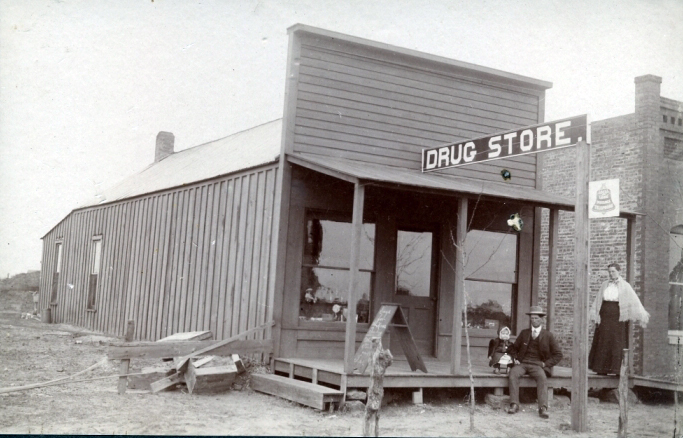FLETCHER.
Fletcher is located in the upper northeastern corner of Comanche County on U.S. Highway 277 and just north of Interstate 44. The town is eighteen miles northeast of Lawton. Founded in 1902, the community was named for Fletcher Dodge, who gave half of his 160-acre homestead for the new townsite. Development was spurred by the crossing of Dodge's homestead by the Oklahoma City and Western Railroad (later the St. Louis and San Francisco Railway). Although the rail line crossed through Fletcher, it took until 1904 for a depot to be built, and even then it was paid for by the townspeople.
Throughout its history Fletcher has largely been an agricultural community. By 1936 it had three cotton gins, an elevator, two chicken hatcheries, three cream and poultry stations, and a large sweet potato house. Sporadically through the years, oil and gas have also aided the local economy. In the 1930s there was a shallow oil field three miles south of town, and a large natural gas field thirteen miles to the east supplied gas to Fletcher and Lawton. In the 1970s the Fletcher Trend gas field again spurred activity in the area, but it did not develop into a major field. Subsequently, the town has attracted many seeking a small-town-living environment while working in the Lawton-Fort Sill area.
Eight years after the town's founding, Fletcher's population stood at 374. In 1920 the number of residents rose to 482. By 1930 the town claimed 739 citizens, representing its largest population jump. The Great Depression years of the 1930s resulted in a gain of exactly fifty persons. Continuing to climb, the 1950 population rose to 875. Gaining only nine residents by 1960, the 1970 population escalated to 950. Because of the oil and gas activity and the community's proximity to Lawton, the number of people calling Fletcher home in 1980 peaked at 1,074. Dropping slightly in 1990 to 1,002, the population went up to 1,022 by 2000 and to 1,177 by 2010. In April 2020 the census reported 1,213 residents.
Several newspapers have informed the townspeople. The Fletcher Herald began publication in 1922 and continued into the twenty-first century. Other newspapers have included the Advocate, the Fletcher Sun, the Fletcher Times, and the Fletcher Enterprise.
See Also
Bibliography
"Comanche County" and "Fletcher," Vertical Files, Research Division, Oklahoma Historical Society, Oklahoma City.
The History of Comanche County, Oklahoma (N.p.: Southwest Oklahoma Genealogical Society, 1985).
Citation
The following (as per The Chicago Manual of Style, 17th edition) is the preferred citation for articles:
Cynthia Savage, “Fletcher,” The Encyclopedia of Oklahoma History and Culture, https://www.okhistory.org/publications/enc/entry?entry=FL001.
Published January 15, 2010
Last updated
March 1, 2024
© Oklahoma Historical Society


